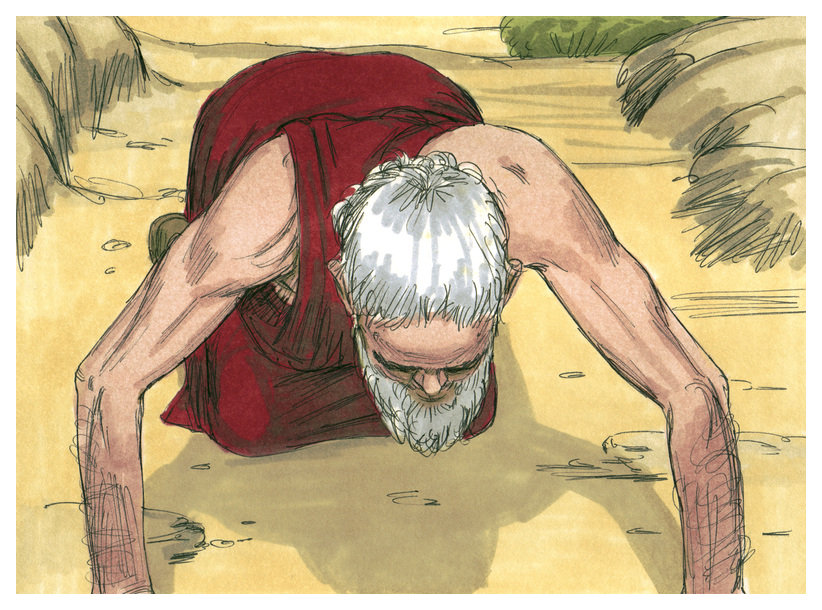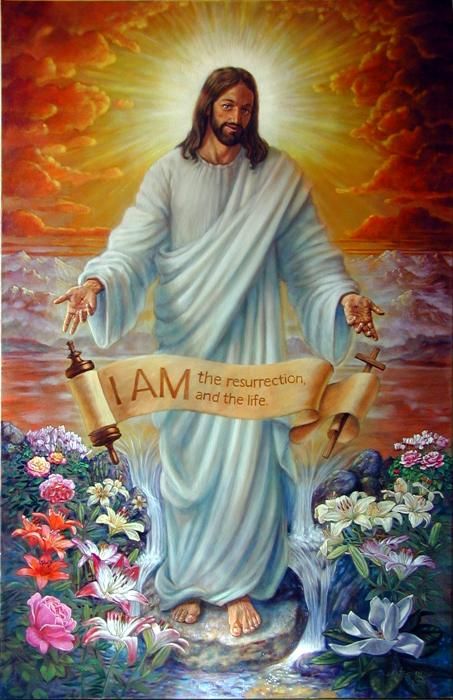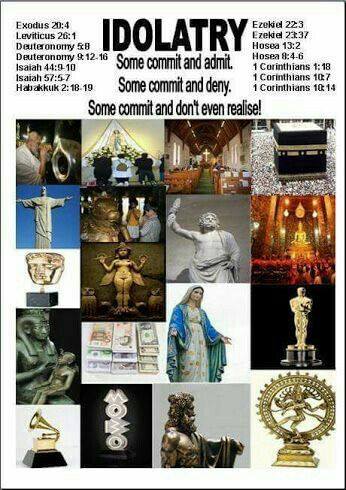Which Is, And Which Was, And Which Is To Come. [six]

Jesus Christ is the Creator
(…continued from part five…)
6) Jesus the Almighty, as He is depicted in Scripture, created all things. The very first of creationism was brought into being out of nothing for: the word ‘created’ of Genesis 1:1 is bara’ (baw-raw’) ‘1. (absolutely) to create 2. (qualified) to cut down (a wood), select, feed (as formative processes).’ The absoluteness of bara’ supports ex nihilo, the Greek for ‘create out of nothing.’ Amen! Jesus upholds all creatures in their beings (Colossians 1:17). The Lord Jesus wrought miracles on earth. The word ‘secret’ of Judges 13:18, pil’iy (pil-ee’) (or paliy’ {paw-lee’}) means ‘remarkable. ‘Wonderful’ of Isaiah 9:6 is pele’ (peh’-leh) ‘a miracle.’ Jesus did resurrect Himself from the dead (John 10:17-18). Jesus saved the whole world from eternal destruction (John 11:25, 5:21, 6:39 & 40).

Abraham saw my day and he was glad
To prove His Almightiness made Him say: “Verily, verily, I say unto you, Before Abraham was, I am” (John 8:58). There is a marked difference between ‘was’ and ‘am.’ While ‘was’ is ginomai (ǰiy’-no-mai) ‘1. to cause to be (“gen”-erate). 2. (reflexively) to become (come into being). 3. (of events) to happen;’ eimi (ei-miy’) is ‘am,’ meaning: ‘1. I am (i.e. I exist). 2. (emphatically declaring oneself, following ἐγώ ego (e-ğō’): ‘I’) It is I Myself (see Matthew 14:27, Matthew 14:28 and Mark 6:50). 3. (of God himself, following ἐγώ ego (e-ğō’)) I AM (this is the comparable Greek form of God’s Hebrew name, YAHWEH; compare Yhovah (yeh-ho-vaw’) Yhow (yeh-ho’) [as a prefix] 1. (meaning) the self-Existent or Eternal, the I AM. 2. (person) Yahweh (Yehvah), Jewish national name of God. 3. (anglicized) Jehovah. 4. (as a name prefix) Yeho-. 5. (As expressed in Hebraic Koine Greek) ἐγώ εἰμί -ego eime-, I AM (literally: I myself, I am).).’

For your scriptural information, “which was,” ho en in Greek takes the age of Jesus to the ‘eternity past.’ If no creature existed in the eternity past, it follows that whoever has his existence from that eternal past has an essence of immutability. Living before time, Jesus is immutable: for time cannot affect Him. He is as old as the Eternal Father! In Proverbs chapter 8, verse 22 speaks of wisdom: “The LORD possessed me in the beginning of his way, before his works of old.” Verse 23 underscores the “wisdom’s” datelessness, “I was set up from everlasting, from the beginning, or ever the earth was.” Verses 24 to 29 which continue to uphold the eternal existence of Wisdom is essentially Jesus in Colossians 2:3 “In whom are hid all the treasures of wisdom and knowledge.” But what is this next dramatic revelation on wisdom which reads: “Then I was by him, as one brought up with him: and I was daily his delight, rejoicing always before him” [Prov 8:30]? Is there any theological savviness to the physical ontogenesis of the Father and of the Christ? Is there an Eternal Grandparent that did bring them up? If these are not tenable then the glaring truth here is, basically, that God the Father and the Christ are of equal ancientness.

How is the datedness of Jesus arrived at scripturally? Each verbal tense of “Which is” ho on “which was” ho en and “which is to come” ho erchomenos is an imperfect tense. What is the grammatical salience of an imperfect tense? Does this tense of ‘imperfectness’ denote or connote an impairment to the status of the subject -Jesus? Not at all, for if it does, then its inference to the Eternal Father puts a question mark on the Father’s ancientry. An imperfect tense is an action or act that does not come to a conclusion. If I should say, “I spoke at 4pm,” the ‘speaking’, coming to a concluding end (at 4pm), is a perfect tense. “I that spoke,” though is in the aorist (past tense), is an imperfect word of action, not grammatically concluded.

The Christ’s ‘was,’ en of “which was” took place in the eternal past. His existence did not come to a termination even in the eternity past! HIS imperfect ‘is’ runs through all the days of this present now: and none can claim to live throughout these days of creationism. We are in the six thousandth year of creationism. “Which is” implies His unimpeded perseity throughout time of creation from Adam to the present moment which extends to the prophecy of His scriptural one thousand years of His earthly rule and beyond. Methuselah, the known oldest man did not even clock the eld of 1,000.
The same One, Christ, lives unto the unending eternity ‘to come.’ “Which was” speaks of eternity to come. The imperfect tense of ‘was’ points to His Lordly eternal Being throughout that unending period. Only the Creator can have these said of Him and to remain verifiably a truism! Jesus, indubitably, is very God of very God! Amen!

Angels worship Jesus Christ
Jewish Torah scripting understands that ‘the holy blessed God said to Moses, “Say unto them, I am he that was, and I am he that now is, and I am he that is to come,” wherefore אהיה is written three times.’ Who is this Jewish God? His earthly name is Yehoshua Mashiyach –(maw-shee’-akh) ‘1. Anointed 2. usually a consecrated person (as a king, priest, or saint) 3. (specifically) the Messiah, the Anointed One– Jesus Christ of Nazareth. Amen!

Rid your mind of unscriptural thoughts. Get born again. Say this simple prayer, believing it with all your heart. Say:
“Dear heavenly Father, I come to You now in the name of Jesus Christ. I believe in my heart that Jesus is the Son of God. I believe that Jesus died on the cross for my sin. I believe that You raised Him from the dead. I confess with my mouth that Jesus is Lord and I receive Him now as my Lord and my Saviour. I give God all the glory. Amen!”
(…to be concluded…)
Please, click here to read part 5
Read the concluding part seven
Visits: 139


